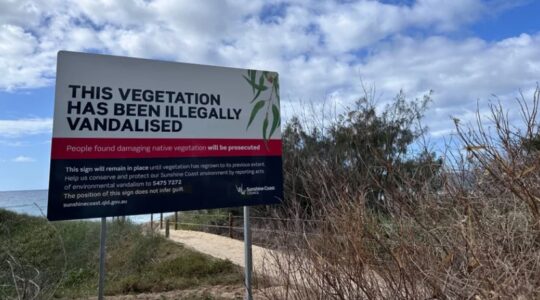More than 250 festival-goers took advantage of Queensland’s first pill-testing services at the Rabbits Eat Lettuce festival over the Easter long weekend.
The State Government said initial data analysis showed that of the 210 samples provided for testing at the festival by qualified chemists, approximately 14 samples were discarded.
Some higher-risk substances were identified including dimethylpentylone (a synthetic cathinone) and 2-fluoro-2-oxo-phenylcyclohexylethylamine, which were both mis-sold as other substances.
The most common substances presented for testing included MDMA and ketamine.
The drug-checking service, which was also a national first for a multi-day event, worked with other onsite services including the festival operations crew and the onsite medical service.
The Government said the service was designed to minimise the risk of harm. In addition to checking drugs for dangerous substances, a team of specialist healthcare and harm-reduction workers provided information about the dangers of drug use, with an aim to positively influence behaviour and reduce the overall intake of illicit substances.
“The new initiative is free, voluntary and confidential. It involves the testing of substances a person is intending to use, providing a health intervention that aims to change a person’s behaviour, and reduce their risk of harms associated with illicit drug use,” a Government statement said.
The event-based service at Rabbits Eat Lettuce was delivered by Pill Testing Australia, with 257 festival-goers visiting the drug-checking tent over the four days.
The average age of patrons who visited the service was about 29.
A fixed site service is earmarked to open in mid-April in Brisbane and will be delivered by a partnership of service providers.
A second fixed site will be determined through co-design processes with people with lived experience.
The Queensland Government is investing nearly $1 million to fund the delivery and evaluation of drug-checking services in Queensland over the next two years.








